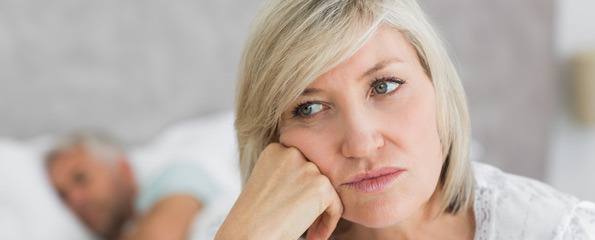Managing vaginal dryness: Interview with an expert
Interview with Dr Joe Kosterich MBBS, General Practitioner and Editorial Advisory Board Member of the Virtual Medical Centre and Parenthub.
What is vaginal dryness?

Dr Joe
In some respects the name says it all. Vaginal dryness is a dryness in the vagina due to a reduction in mucous production. It is common and whilst it can occur at any age is more common in the post menopausal age group.
Much like the eyes or mouth the vagina is kept “moist” by secretions produced by glands. If this production wanes then the area becomes dry.
When does it occur?
Vaginal dryness occurs when there is a reduction in the production of mucous from glands in the vagina. Vaginal mucous secretions are influenced by hormones in general and oestrogen in particular so when oestrogen levels drop after menopause dryness is more common. However it can also occur (albeit less commonly) after childbirth or with breastfeeding.
Surgical removal of the ovaries can lead to dryness as can smoking and some cancer treatments. Anxiety or stress can also trigger vaginal dryness.
Some medications such as antihistamines or cold and flu tablets also have a drying effect.
A similar effect can occur with some soaps and hygiene products especially those with strong perfume as this can irritate the mucous producing glands. And sometimes after courses of antibiotics the normal flora of the vagina is altered with “good” bacteria being knocked out which can also contribute to dryness.
What problems does vaginal dryness cause?
The main symptoms experienced are a burning or soreness at and around the vagina and pain or discomfort with intercourse. Some women may experience discomfort or burning with passing urine or feel the need to pass urine more frequently.
However, the biggest problem is in some respects a secondary one as the discomfort with intercourse can lead to a loss of enjoyment of sex. In turn this can, in some women, affect their general sense of wellbeing. It can also trigger difficulties in relationships if intercourse is avoided.
It is important to note though that partners are generally understanding and keen to help if they know what the problem is. So open communication in a relationship is vital. Vaginal dryness is in no way anyone’s fault! This is a critical point.
Why is it important to not just avoid sexual intimacy?
As vaginal dryness is relatively simple to manage and overcome it is important to not just avoid sexual intimacy. There is no need to and in doing so, it is an acceptance of that which can be changed.
Sexual intimacy is an enjoyable part of life and loss of it can reduce overall enjoyment of life.
Plus, for some women, they may feel less feminine. There is no need to go down this path as it is simple to remedy. Your partner can be part of the solution and not part of the problem.
Use of lubricants (sometimes simply called lube) makes a big difference as does allowing more time for arousal.
What can be done about it?
The good news is that treatment is generally simple and effective. The first step is to deal with any factors which may be contributing. For example changing to perfume free soaps and products and if you smoke, stopping smoking.
If the use of medications have led to dryness then see whether you can come off them. In the case of cold and flu tablets this is easy and you don’t even need to see your doctor to stop them.
Where stress is a factor then managing stress is going to help.
Many over the counter moisturisers or lubricants can be very helpful. A lubricant is for episodic use. It soothes movement across the surface but it does not change the texture of the vaginal tissue. It has no ‘lasting’ effect so would only be applied before intercourse or other times when friction may cause soreness. However, a moisturiser is designed to be absorbed by the vagina so as to make the tissue itself less dry. With regular use, it changes the texture of the vaginal tissue so is applied daily (like with a skin moisturiser). Generally it is best applied after a shower or before going to bed.
In the post menopausal age group oestrogen creams or pessaries can be useful. These are on prescription and it is important to talk with your doctor as to whether this is appropriate for you.
More information
 | For more information on menopause, including symptoms and management of menopause, as well as some useful videos, see Menopause. |
Dates
Tags
Created by:

 Login
Login














